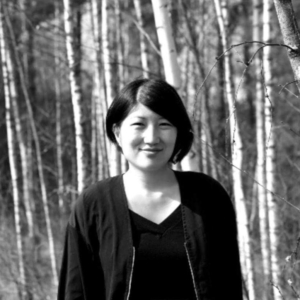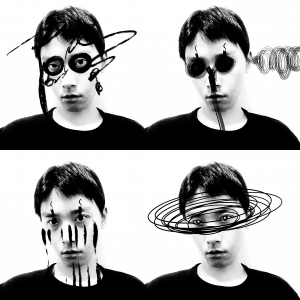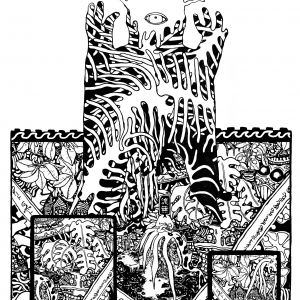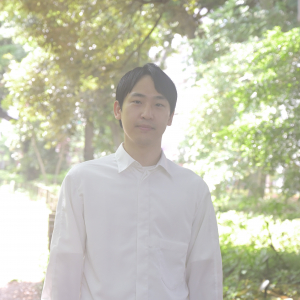PROGRAMRESEARCH FELLOWS
Purpose of Hosting Research Fellows
Please note that the Research Fellow program is suspended for the 2025 academic year.
ICA Kyoto welcomes Research Fellows who possess a broad and comprehensive perspective on contemporary trends and who aspire to play active roles in the global art scene. We expect that encounters in Kyoto with people from diverse cultural, historical, and social backgrounds, and with differing values, will serve as a catalyst for future professional development. Through creative production and research, Research Fellows are positioned to accumulate experience and expand their potential through close communication with people and environments that can be found only in Kyoto.
Institute of Contemporary Arts Kyoto
RESEARCH FELLOWS
Christine Cheung
Nationality :
Canadian
Activity base/place :
Berlin, Germany
Enrolled :
2023 fall
Research theme :
My research will focus on how landscape has informed Japanese culture. I will research the history and present uses of Japanese gardens; looking at their history, and the role environment and place play in individual and cultural-collective memory.Outline :
During a visit to Taiwan in 2016, Cheung encountered a Japanese garden where she learned about an architect from Japan, who, being away from his home country, altered his traditional architectural designs. These gaps in culture, affected by place, often can result in work where the freedom of the artist can be uniquely expressed.Cheung’s work is often based on her relationship with the environment. By researching Japanese gardens using a phenomenological approach, Cheung aims to employ a variety of media, aiming to blur the lines between spectator/author. Inspired by how gardens in Japan create a spatial and tactile relationship with the viewer, as a space of contemplation, similar to painting, Cheung is interested in connecting the physicality of place with the more ephemeral landscape of the mind. By gathering cultural memories and associative elements of these topographies, Cheung will explore how our senses of the landscape can be activated.

Peiyuan ZENG
Nationality :
China
Activity base/place :
Kyoto, Tokyo
Enrolled :
2023 fall
Research theme :
My research draws attention to emerging queer artists from various Asian countries, whose art works vividly represent the status quo of queer community in Asian context - simultaneously addressing to theories from three Western philosophers: Mikhail Bakhtin's “grotesque body”, Michel Foucault's “discipline and punish” and Judith Butler's “gender performativity” - to analyze the queer embodiment from Asian perspectives.Outline :
The word “queer” originally denotes “strange / odd / peculiar / eccentric” but its meaning has been gradually neutralized and extended as an umbrella term for LGBT+ community who are not heterosexual or cisgender; and in the process of theorizing “queer”, its notion has been amplified as the core spirit of open resistance to question and challenge the “normativeness” (of heteronormativity); On the basis of the core spirit of open resistance, the research will start from several Asian artists’ bizarre and outlandish photographic images to investigate and query the social norms in a sense of oppression - how these Asian artists employ the human body as subjects and/or objects, applying unorthodox aesthetics alienated from the norm, to portrait and represent a variety of neglected Asian queer community by art photography, as their daily open resistance.
Pierre-William Fregonese
Nationality :
France
Activity base/place :
Kobe, Kyoto and Tokyo
Enrolled :
2023 fall
Research theme :
My research seeks to investigate the significance of Makoto Shinkai's artwork as a prominent exemplar that analyses cultural anxieties linked to the portrayal of "japaneseness" amid societal changes in contemporary Japanese society. To clarify, the director's aesthetics uncover, expose, and shape the present-day Japanese identity within national and global settings.Outline :
Makoto Shinkai's works intertwine images, narratives, animation, and imaginative elements to delve into the development of social norms, current concerns and geographical inequalities, and their influence on the dialogue around identity in Japan. These challenges jeopardise social harmony and induce reactionary outbursts, which in turn escalate and amplify malicious rhetoric, evidently fostered by social media. His works provide a platform to compare an imaginative model with reality, showcasing innovative methods to address and surmount challenges experienced by subgroups and subcommunities, particularly Japanese women. By examining such productions, it is feasible to reassess and revive the idea of "japaneseness" in a society where traditional communities are in decline. Ultimately, it is crucial to emphasize how the re-signification of Japanese identity in these films directly affects the re-signification of foreign identities.
rumu
Nationality :
***
Activity base/place :
Kyoto
Enrolled :
2023 fall
Research theme :
Oneiroarcheology is the study of the ancient and recent human past thru the ephemeral remains of the dreamworld. The process involves a careful documentation and analysis of one's dreams in relation to cosmic cycles. The research is grounded in a contemporary interpretation of the Esoteric Buddhist teachings from the Xiuyao jing 宿曜道 and the iconography of Star Mandalas 星曼荼羅.Outline :
Taking inspiration from historical physicians and astrologers, rumu's current practice resides in Tibetan Medicine (Sowa Rigpa) and Japanese Sukuyōdō Astrology, using traditional methodology for self study on interdependence to create language and musical scores out of dream matter. With lucid dreaming as a medium, rumu explores the otherwise hidden aspects of internal-external elemental influences and their celestial connection as a way to inspire pleasant dreams. Painting with the water of Kifune Shrine 貴船神社, rumu is creating a series of Fortune Cards to be used for divining and connecting with the powerful esotericism of Kyoto.
Sanghae Kwon
Nationality :
South Korea
Activity base/place :
Tokyo
Enrolled :
2023 fall
Research theme :
My research focuses on the history of Madanggeuk (Madang play) through research on Madanggeuk in Higashi Kujo (East Kujo) in Kyoto.Outline :
The Madanggeuk (Madang play) is a performance form that inherited the traditional Korean mask dance drama known as Talchum. It was primarily developed in the context of the popular culture movement in South Korea during the 1960s to 1980s. In Japan, Madanggeuk has been performed in various forms within the Japanese-Korean community since the 1980s, addressing community, multicultural coexistence, and local issues. However, the artistic and historical value of Madanggeuk in Japan has not been extensively explored. My study aims to explore the contemporary significance of Madanggeuk, which has depicted the lives of the people in both Japan and South Korea, by researching the spirit and expressive forms of Madanggeuk in Kyoto.